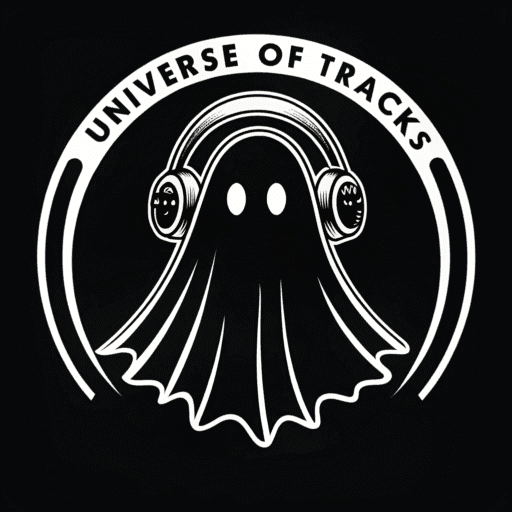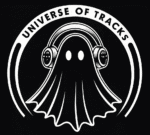Ghost Production FAQ: 50 Most Asked Questions Answered by Professionals
Everything you need to know about ghost production answered by industry professionals. This comprehensive FAQ addresses the most common questions about ghost producers, pricing, legality, and best practices.
Basic Ghost Production Questions
1. What is ghost production?
Ghost production is a service where professional producers create original tracks that are sold to other artists who release them under their own name. The original producer remains anonymous (hence “ghost”).
2. What is a ghost producer?
A ghost producer is a professional music creator who produces tracks for other artists while remaining anonymous. They transfer all rights to the buyer and receive no public credit.
3. Is ghost production legal?
Yes, ghost production is completely legal when proper contracts and rights transfers are in place. It’s a legitimate business practice used throughout the music industry.
4. Do famous DJs use ghost producers?
Many successful DJs and producers use ghost production services to maintain consistent releases while focusing on touring and brand development.
5. How much does ghost production cost?
Ghost production pricing ranges from $299 for emerging producers to $10,000+ for industry veterans, depending on quality and producer reputation.
Quality and Technical Questions
6. What quality should I expect from ghost production?
Professional ghost production should deliver radio-ready, commercially viable tracks with proper mixing and mastering meeting industry standards.
7. What files do I get with ghost production?
Complete ghost production packages typically include WAV/AIFF masters, individual stems, MIDI files, project files, and legal documentation.
8. Can I modify ghost produced tracks?
Yes, purchasing ghost production typically grants full rights to modify, remix, or edit the track as needed.
9. How do I know if ghost production is high quality?
Evaluate ghost production quality through portfolio reviews, technical analysis, client testimonials, and listening tests.
10. What genres work best for ghost production?
Electronic dance music genres like House, Techno, Trance, and Dubstep are most popular for ghost production, though all genres are available.
Legal and Rights Questions
11. Do I own the ghost produced track completely?
Yes, professional ghost production includes full rights transfer, giving you complete ownership and commercial usage rights.
12. Can the ghost producer claim credit later?
No, legitimate ghost production contracts include non-disclosure agreements preventing future credit claims.
13. What legal documents should I receive?
Ghost production purchases should include work-for-hire agreements, non-disclosure agreements, and rights transfer documentation.
14. Can I register the ghost produced track for royalties?
Yes, you can register ghost produced tracks with performing rights organizations under your name as the sole creator.
15. What happens if there’s a copyright dispute?
Professional ghost production services provide legal protection and dispute resolution support for legitimate purchases.
Process and Timeline Questions
16. How long does ghost production take?
Pre-made ghost production tracks are available instantly, while custom productions typically take 1-4 weeks depending on complexity.
17. Can I request revisions to ghost productions?
Many ghost producers offer revision rounds for custom projects, though pre-made tracks are typically sold as-is.
18. How do I communicate with ghost producers?
Professional ghost production platforms facilitate secure communication between buyers and producers while maintaining anonymity.
19. What information should I provide for custom ghost production?
For custom ghost production, provide reference tracks, BPM preferences, key signatures, energy levels, and specific requirements.
20. Can I work with the same ghost producer repeatedly?
Yes, building relationships with reliable ghost producers often leads to better pricing and understanding of your style.
Pricing and Payment Questions
21. Why do ghost production prices vary so much?
Ghost production pricing depends on producer experience, track complexity, exclusivity level, and additional services included.
22. Is cheaper ghost production worth it?
While budget ghost production can offer value, extremely low prices often indicate quality compromises or rights issues.
23. What payment methods are accepted?
Professional ghost production platforms typically accept PayPal, credit cards, bank transfers, and cryptocurrency payments.
24. Do I pay before or after receiving the track?
Most ghost production transactions require payment before file delivery, with secure escrow systems protecting both parties.
25. Are there additional costs beyond the track price?
Professional ghost production should include all necessary files and documentation in the quoted price.
Career and Strategy Questions
26. Will using ghost production hurt my career?
When used strategically, ghost production can accelerate career growth by ensuring consistent, high-quality releases.
27. Should I tell people I use ghost production?
The decision to disclose ghost production usage is personal, though industry acceptance has increased significantly.
28. Can I learn production skills from ghost producers?
Studying ghost production project files and stems can provide valuable learning insights for developing producers.
29. How many ghost produced tracks should I release?
The number of ghost produced tracks depends on your career strategy, budget, and balance with original productions.
30. Can ghost production help me get signed to a label?
High-quality ghost production can strengthen demo packages and increase label signing chances.
Platform and Marketplace Questions
31. How do I find reliable ghost producers?
Use established ghost production marketplaces with verification systems, reviews, and quality guarantees.
32. What should I look for in a ghost production platform?
Choose ghost production platforms offering producer verification, secure payments, legal documentation, and quality assurance.
33. Can I sell my own tracks as ghost productions?
Yes, many platforms allow producers to sell their tracks as ghost productions to other artists.
34. How do ghost production platforms ensure quality?
Professional ghost production platforms use review processes, technical standards, and feedback systems to maintain quality.
35. Are all tracks on ghost production sites exclusive?
Reputable ghost production platforms sell each track only once to ensure exclusivity for buyers.
Technical and Production Questions
36. What DAW software do ghost producers use?
Ghost producers typically use professional DAWs like Ableton Live, Logic Pro, FL Studio, or Cubase.
37. Do ghost producers master the tracks?
Professional ghost production services include mixing and mastering to deliver radio-ready final products.
38. Can I get the original project file?
Many ghost production packages include original DAW project files for maximum flexibility.
39. What audio format do ghost produced tracks come in?
Ghost production deliveries typically include 24-bit WAV files, with some offering additional formats.
40. How do I know if a ghost produced track will work in my set?
Professional ghost production platforms provide detailed track information including key, BPM, and energy level.
Business and Professional Questions
41. Can I use ghost production for commercial releases?
Yes, ghost production with proper rights transfer allows full commercial use including streaming, sales, and licensing.
42. Do I need to credit the original producer anywhere?
No, ghost production agreements specifically waive attribution requirements.
43. Can I license ghost produced tracks to others?
With full rights ownership from ghost production, you can license tracks to third parties.
44. How do taxes work with ghost production purchases?
Ghost production purchases are typically business expenses, though consult tax professionals for specific advice.
45. Can I get insurance for ghost production investments?
Some professional insurance policies cover ghost production investments and intellectual property purchases.
Future and Trends Questions
46. Is AI replacing ghost producers?
While AI tools assist production, human ghost producers remain essential for creativity, emotion, and market understanding.
47. Will ghost production become more accepted?
Ghost production acceptance continues growing as the industry recognizes it as a legitimate professional service.
48. How is ghost production evolving?
The ghost production industry is expanding with better platforms, higher quality standards, and more genre diversity.
49. Should new producers start with ghost production?
Ghost production can help new artists maintain releases while developing production skills gradually.
50. What’s the future of ghost production?
The ghost production industry will likely grow with increased specialization, technology integration, and mainstream acceptance.
Conclusion
This comprehensive ghost production FAQ addresses the most common questions from both buyers and sellers. The industry continues evolving with higher standards, better platforms, and increased acceptance as a legitimate professional service.
Whether you’re considering your first ghost production purchase or looking to become a ghost producer, understanding these fundamentals will help you navigate the industry successfully.
Ready to explore professional ghost production? Browse Universe of Tracks’ verified marketplace today.

